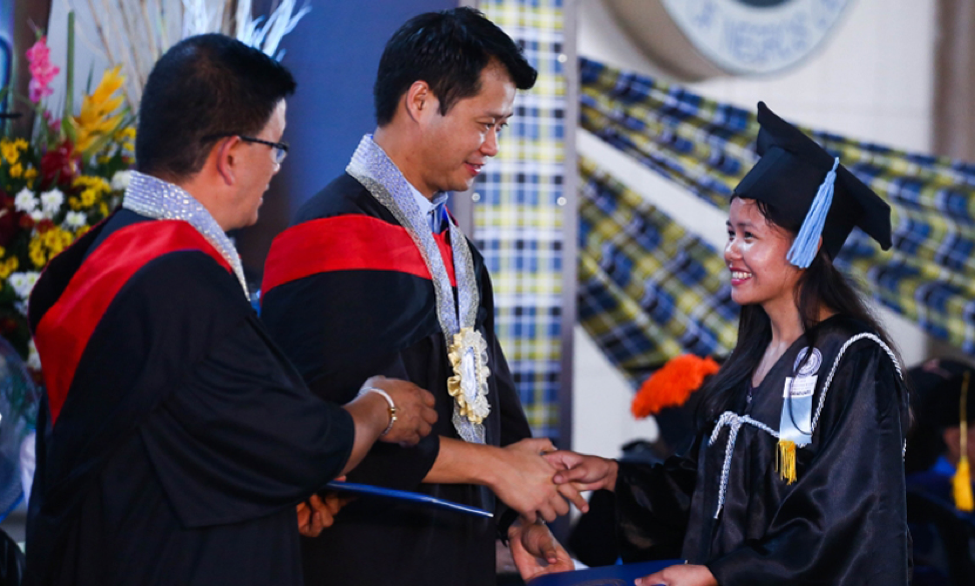
An education advocate has called for the swift passage of his measure “Free Higher Education Act” to boost the income of future generations following a report by the Economist that the Philippines will continue to have “wide inequalities of income”.
“We need to fund higher education and make it free in all state universities and colleges to give our students a fighting chance for a better life and help close the income gap,” Valenzuela City Congressman Win Gatchalian, a majority member for the House Committee on Higher and Technical Education, said.
Gatchalian filed House Bill No. 5905, to be known as the “Free Higher Education Act”, which will fully subsidize tuition fee in all SUCs for all current and future enrollees provided they maintain good academic and moral standing.
Related News: More than 6M out-of-school youth to benefit under Magna Carta bill
In the Family and Income Expenditure Survey 2012, a household led by a college graduate earns an average family income that is more than twice that of a family headed by one who has only finished high school.
Gatchalian’s bill, if enacted, will play a crucial role in averting the growing divide among the economic classes in the country.
A special report by the Economist Intelligence Unit showed the country will continue to be “one of Southeast Asia’s poorest economies, with a lower level of GDP per head than the majority of the region’s other major economies.”
The report titled “An outlook for key emerging Asian markets” also showed an estimate that the GDP per head will be $4,549 at market exchange rates by 2019 from $2,843 in 2014.
However, population will also balloon to 108.4 million in 2019 from 100.1 million five years before.
Related News: Nutri-Skwela Act of 2015 to address malnutrition among school children
The Economist continued: “The Philippine economy will also remain marked by wide inequalities of income, and the disparity between the richest and poorest households will stay particularly acute. Consequently, large numbers of Filipinos will continue to live in poverty.”
Based on the report, the benefits provided by the government to indigent households in rural areas is limited only to basic services. “Amid sustained strong GDP growth from 2012, the rural poor will benefit only to the extent that the government directs its spending towards improving the quality of essential services, such as education, healthcare, and transport,” as stated.
In terms of individual benefits, Gatchalian’s proposed law will help improve students’ future income. It will especially help students from poor households to enhance their social mobility.
“There are higher private returns in investing in tertiary education than secondary school education,” the Nationalist People’s Coalition (NPC) solon said. “This shows the singular power of higher education in improving economic outcomes for the neediest segments of our population.”
Related News: Gatchalian names 3 main reasons to support ‘K to 12 Program
HB 5905 also provides for the creation of the Special Tuition Subsidy Fund, which shall be managed by the Commission on Higher Education (CHED).
The CHED will also be responsible for creating a mechanism to be used by SUCs, which will detail the exact amount of tuition fee subsidy availed of by eligible students. It will also have to give to Congress a midterm report detailing the enrollment rate, student demographics, gross tuition receipts, disqualification and ineligibility, among others.
The president of each SUC will be required to submit to CHED a report on the number of units enrolled availed of by eligible students and the tuition fee amount due. The said report has to be given within five days after the last day of the late registration for each semester. They also have to submit to CHED an accountability report. (Monica Cantilero)


